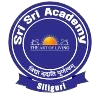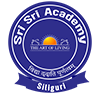
Instilling a Feeling of Patriotism in Kids on Republic Day
Patriotism provides us with a sense of purpose, allows us to care for our fellow citizens, and makes us more responsible. Patriotism, in most circumstances, offers no room for selfishness to grow. When a person begins to love their nation, their selfish desires begin to diminish. When parents make it their purpose to raise their children to be patriotic, their children abandon superficial pleasures in favor of a greater calling. Because of their great devotion and single-mindedness, they have a much better chance of living satisfying lives.
Instilling patriotism in children from an early age gives them a sense of belonging and a larger purpose. Their willingness to prioritize the country and its people grows, which ultimately shapes them into exceptional citizens. And what other day can be more suited to instilling patriotism in youngsters than Republic Day? Think about it, it is the ideal opportunity to teach our children about our country’s history, the endurance and fortitude of our great freedom fighters, and the resulting independence we all enjoy.
The Independence Day and Republic Day
The most important thing you can do is teach your children the distinction between these two candy-filled national festivals. The concepts of independence and republic are diametrically opposed. The former was the end of the British Raj in India, which we overthrew on August 15, 1947. While the latter, observed on January 26th, 1950, commemorates the day India became a republic by adopting its new constitution, which is the world’s biggest written constitution, and Dr. Ambedkar is recognized as its principal architect.
The Significance of Republic Day
Countries are defined as bounded landmasses populated by people of various tints and colors. And India is one of the world’s most diversified countries. When you compare the cultures of the South to the North or the East to the West, you will see that they vastly differ.
So, how can it be justified to have a single individual reign over a whole country that is so diverse? We have all observed the evils of monarchy or dictatorship. When a single individual or family governs a country, inhabitants are unlikely to have peaceful and happy lives. Thus, to make sure that this never happens, a country’s citizenry should run it.
Taking this into consideration, our predecessors declared India to be a republic on January 26, 1950, with the motto ‘Government of the people, for the people, and by the people.’ Owing to the cooperative decision to make India a republic, methods like elections and legislative assemblies came into existence. Thus, January 26 commemorates the day when the country came together and pledged to elect its leaders and follow the framework outlined in the constitution.
Some Lesser Known Facts About Republic Day
- The Indian constitution is the world’s longest at 1,46,385 words, divided into 22 sections and 444 articles.
- The inaugural Republic Day celebration and extravagant parade were conducted at Rajpath, Delhi, on January 26, 1950. This parade is still held on January 26th atop Red Fort, where we proudly display our military might and cultural history in vivid ways.
- Dr. Rajendra Prasad, the first president of independent India, was also the first to wave the Indian flag on Republic Day.
- Every year, presidents from across the world are invited to our Republic Day procession. Egypt’s President Abdel Fattah al-Sisi will grace us with his visit this year.
- Awards such as the Bharat Ratna and the Padma Shri are bestowed. Even bravery medals are granted to both government employees and citizens.
- The Republic Day celebrations last three days, culminating on the 29th with the playing of the song “Sare Jahan Se Accha” and the lowering of the flag.
Conclusion
One Republic Day is not sufficient to teach children about our country’s colorful history or the hundreds of leaders who toiled and gave their lives to achieve the liberty we all enjoy today. However, it is a start.
The tales you tell your children on this day will make them more patriotic, educate them to distinguish between good and bad, and eventually inspire them to emulate the freedom fighters and do their best to aid their fellow humans.

